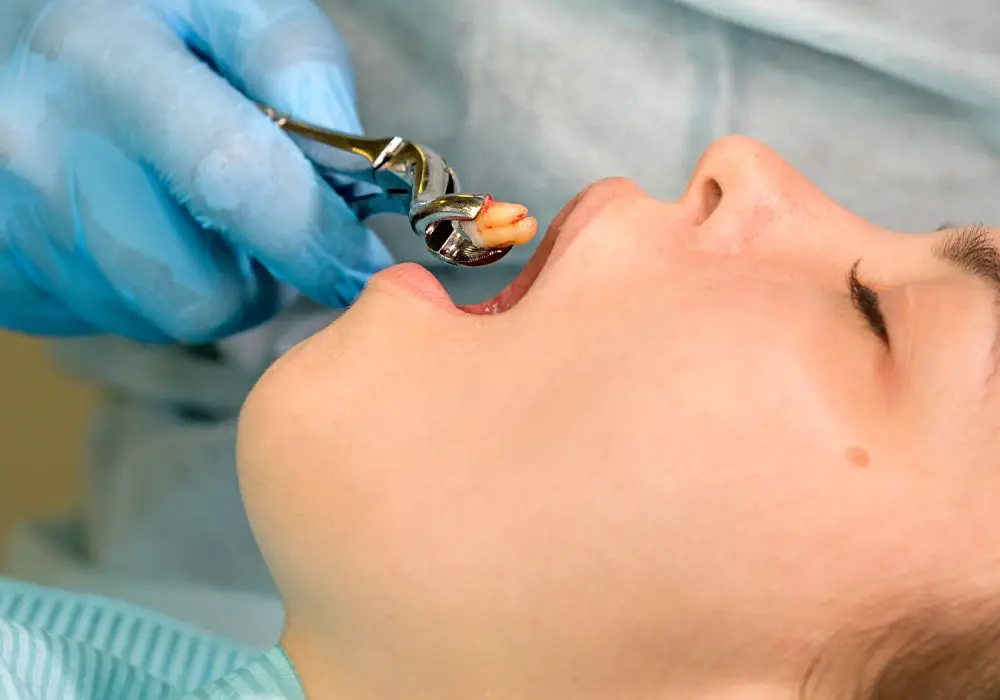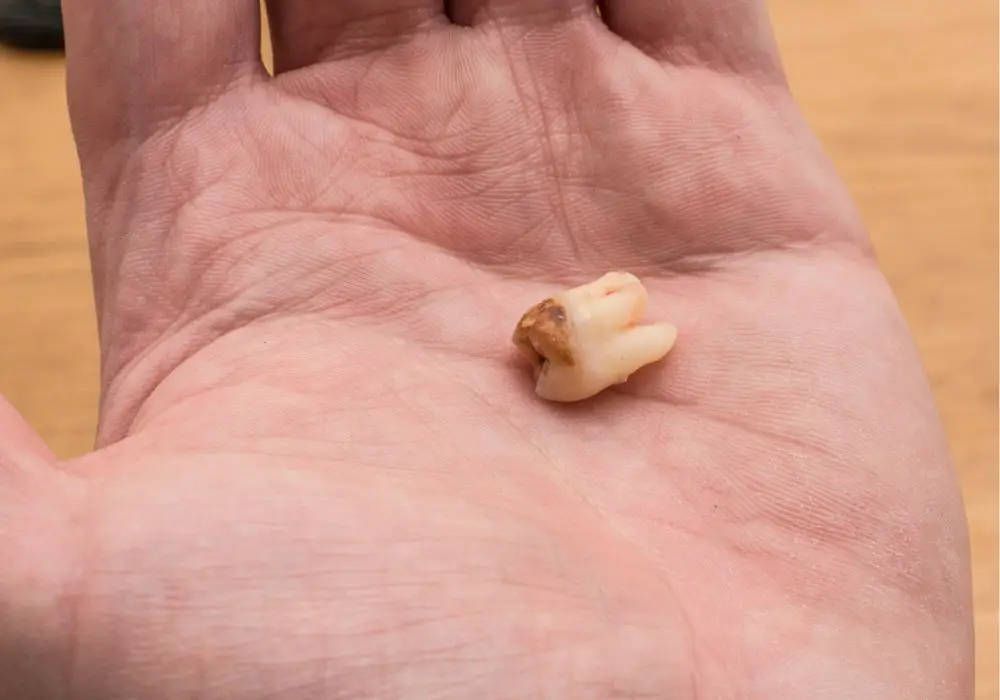After having your wisdom teeth removed, you may be wondering how long it will take before you can resume your normal activities. It’s important to follow your dentist or oral surgeon’s instructions carefully to ensure proper healing and avoid complications.
Generally, it takes about two to four days to recover from wisdom teeth removal. During this time, you should rest and avoid any strenuous activity that could dislodge the blood clot and cause bleeding. You should also avoid drinking through a straw, smoking, and spitting, as these actions can also cause bleeding and delay healing.
It’s also important to maintain good oral hygiene during your recovery period. You can gently brush your teeth the night of your surgery, but wait until the next day to rinse your mouth. After that, you can rinse your mouth with warm salt water several times a day to help keep the surgical site clean and promote healing. If you experience any severe pain, bleeding, or swelling, contact your dentist or oral surgeon immediately.
Understanding Wisdom Teeth Removal
If you are experiencing pain, infection, or other dental problems due to your wisdom teeth, your dentist may recommend wisdom teeth removal. Wisdom teeth are the four permanent adult teeth located at the back corners of your mouth on the top and bottom. These teeth can become impacted, meaning they don’t have enough room to grow, which can cause pain and other issues.
Wisdom teeth removal is a surgical procedure that involves the complete removal of one or more wisdom teeth. This procedure is typically performed by an oral surgeon or dentist, and it may be done under local anesthesia, sedation, or general anesthesia. The type of anesthesia used will depend on the number of teeth being removed and your personal preference.
After the procedure, you will need to rest for a period of time to allow your body to heal. The length of time you need to rest will depend on the number of teeth removed and your individual situation. In general, it can take up to two weeks to fully recover from wisdom teeth removal. During this time, you should avoid strenuous activity and follow your dentist’s post-operative instructions closely.
Some common post-operative instructions may include:
- Applying ice to your face to reduce swelling
- Taking pain medication as prescribed
- Eating soft foods and avoiding hard, crunchy, or sticky foods
- Avoiding smoking and using straws
- Rinsing your mouth with warm salt water to promote healing
By following your dentist’s instructions and taking care of yourself during the recovery period, you can ensure a smooth and successful recovery from wisdom teeth removal.
Immediate Post-Operative Period
Immediate Recovery Time
After your wisdom teeth removal surgery, you will be taken to a recovery room where you will be monitored until you are fully awake. The immediate recovery time varies from person to person, but it usually takes around 30 minutes to an hour to recover from the anesthesia. During this time, you may feel groggy, dizzy, or nauseous. It is important to have someone with you to drive you home and stay with you for a few hours after the surgery.
First Few Hours After Surgery
The first few hours after your wisdom teeth removal surgery are crucial for a successful recovery. Here are some tips to help you during this period:
- Bite down gently on the gauze pads placed over the surgical areas. Change them every 30-45 minutes or as needed.
- Avoid rinsing your mouth or spitting for the first 24 hours after surgery. This can dislodge the blood clot and delay the healing process.
- Apply ice packs to your cheeks for 20 minutes at a time to reduce swelling. Do this for the first 24-48 hours after surgery.
- Take pain medication as prescribed by your dentist or oral surgeon. Do not exceed the recommended dose.
- Eat soft, cool foods and drink plenty of fluids. Avoid hot or spicy foods, as well as alcohol and tobacco products.
- Rest and avoid strenuous activities for the first few days after surgery. You can gradually resume your normal activities as you feel comfortable.
Remember to follow your dentist or oral surgeon’s instructions carefully for a successful recovery. If you experience severe pain, bleeding, or swelling, contact your dentist or oral surgeon immediately.
First Few Days After Surgery

After wisdom teeth removal, the first few days are crucial for a smooth recovery. Here’s what you can expect during this time.
Eating and Drinking
For the first few days after surgery, it’s important to stick to a soft food diet to avoid irritating the surgical sites. You can eat things like mashed potatoes, yogurt, soup, and smoothies. Avoid hot and spicy foods, as well as foods that are hard, crunchy, or chewy.
It’s also important to stay hydrated by drinking plenty of water. However, avoid using a straw, as the sucking motion can dislodge the blood clot and delay healing.
Rest and Activity
Rest is crucial during the first few days after surgery. Plan to take it easy and avoid strenuous activity. You may feel tired and groggy due to the anesthesia, so it’s important to give your body time to recover.
It’s also important to keep your head elevated while resting to reduce swelling. Use pillows to prop yourself up and avoid lying flat.
When it comes to activity, avoid anything that could dislodge the blood clot or cause bleeding. This includes vigorous exercise, bending over, and lifting heavy objects.
By following these guidelines during the first few days after surgery, you can help ensure a smooth and speedy recovery.
Weeks After Surgery
Resuming Normal Activities
After the first week of recovery, you can start resuming normal activities such as going to work or school. However, you should still avoid any strenuous activities such as heavy lifting or intense exercise for at least two weeks after surgery. It’s important to listen to your body and not push yourself too hard too soon.
You can also start introducing solid foods back into your diet, but make sure to avoid any hard or crunchy foods that may irritate the surgical site. Stick to soft, easy-to-chew foods such as mashed potatoes, scrambled eggs, and soup.
Long-Term Healing Process
While the initial healing process may take two to four weeks, the long-term healing process can take up to six months. During this time, your body will continue to heal and adjust to the absence of your wisdom teeth.
It’s important to continue practicing good oral hygiene by brushing and flossing regularly to prevent any infections or complications. You may also want to schedule a follow-up appointment with your dentist or oral surgeon to ensure that everything is healing properly.
In some cases, you may experience some residual pain or discomfort for several weeks or even months after surgery. This is normal and can be managed with over-the-counter pain relievers such as ibuprofen or acetaminophen.
Overall, be patient with the healing process and don’t hesitate to reach out to your dentist or oral surgeon if you have any concerns or questions.
Potential Complications

After wisdom teeth removal surgery, there are potential complications that you should be aware of. Here are two common complications that could occur:
Dry Socket
Dry socket is a painful condition that occurs when the blood clot that forms in the socket where the tooth was removed becomes dislodged or dissolves before the wound has healed. This can expose the underlying bone and nerves, leading to intense pain that can radiate to the ear and neck.
To avoid dry socket, it’s important to follow the aftercare instructions provided by your dentist. These may include avoiding smoking, using a straw, and eating hard or crunchy foods for several days after the surgery. If you do experience dry socket, your dentist may prescribe pain medication and pack the socket with a medicated dressing to promote healing.
Infection
Infection is another potential complication of wisdom teeth removal surgery. Symptoms of infection may include fever, swelling, redness, and discharge from the surgical site.
To prevent infection, it’s important to keep the surgical site clean and follow your dentist’s instructions for aftercare. This may include rinsing your mouth with saltwater, avoiding brushing the surgical site for the first few days, and taking any prescribed antibiotics as directed.
If you suspect that you have an infection, contact your dentist immediately. They may prescribe antibiotics or recommend additional treatment to prevent the infection from spreading.
Remember, while complications can occur after wisdom teeth removal surgery, following your dentist’s aftercare instructions can help minimize your risk and promote a smooth recovery.
Tips for a Smooth Recovery
After wisdom teeth removal, it’s essential to take good care of yourself to promote a smooth recovery. Here are some tips to help you feel better and heal faster:
1. Follow your dentist’s instructions
Your dentist will provide you with detailed instructions on how to take care of your mouth after surgery. Make sure to follow them closely to avoid any complications and speed up the healing process.
2. Rest and relax
Take it easy for the first few days after surgery. Avoid any strenuous activities or exercise, and get plenty of rest. This will help your body focus on healing.
3. Use ice packs
Apply ice packs to your cheeks for the first 24 hours after surgery to reduce swelling. Use them for 20 minutes at a time, with a 10-minute break in between.
4. Eat soft foods
Stick to soft, easy-to-eat foods for the first few days after surgery. Avoid anything hard, crunchy, or spicy, as they can irritate the extraction site. You can gradually add solid foods back into your diet as you start to feel better.
5. Keep your mouth clean
Brush your teeth gently, avoiding the extraction site, and rinse your mouth with saltwater or a prescribed mouthwash to keep the area clean. Avoid using a straw, as the suction can dislodge the blood clot and delay healing.
6. Stay hydrated
Drink plenty of water and other fluids to stay hydrated. Avoid alcohol and caffeine, as they can dehydrate you and slow down the healing process.
By following these tips, you can help ensure a smooth recovery after wisdom teeth removal. Remember to be patient and take good care of yourself, and you’ll be back to your normal routine in no time.
Frequently Asked Questions

When can I return to normal activity after wisdom teeth removal?
It is recommended that you rest for at least 24 hours after wisdom teeth removal. After that, you can gradually return to your normal activities. However, you should avoid any strenuous activity or heavy lifting for at least a week.
How soon can you talk after wisdom teeth removal?
You can talk immediately after wisdom teeth removal, but you may experience some difficulty due to swelling and soreness. It is recommended that you rest your mouth and avoid talking excessively for the first few days after the surgery.
Can I go to work the next day after wisdom tooth extraction?
It is generally recommended that you take at least a day off from work after wisdom tooth extraction, especially if your job involves physical activity or requires you to talk a lot. However, if your job is sedentary and does not require much physical activity or talking, you may be able to return to work the next day.
What are you not allowed to do after wisdom teeth removal?
After wisdom teeth removal, it is important to avoid smoking, using straws, spitting, or rinsing your mouth for at least 24 hours. These activities can dislodge the blood clot that forms in the socket and delay the healing process. You should also avoid hard, crunchy, or sticky foods for the first few days after the surgery.
How to speed up wisdom teeth recovery?
To speed up wisdom teeth recovery, it is important to follow the post-operative instructions provided by your dentist or oral surgeon. This may include taking pain medication, using ice packs to reduce swelling, and rinsing your mouth with warm salt water. It is also important to eat soft, nutritious foods and drink plenty of fluids to stay hydrated.
Why is day 3 after wisdom teeth removal the worst?
Day 3 after wisdom teeth removal is often considered the worst because this is when the swelling and discomfort are usually at their peak. However, this can vary from person to person, and some people may experience more discomfort on different days. It is important to continue following the post-operative instructions and taking any prescribed pain medication to manage your discomfort.






